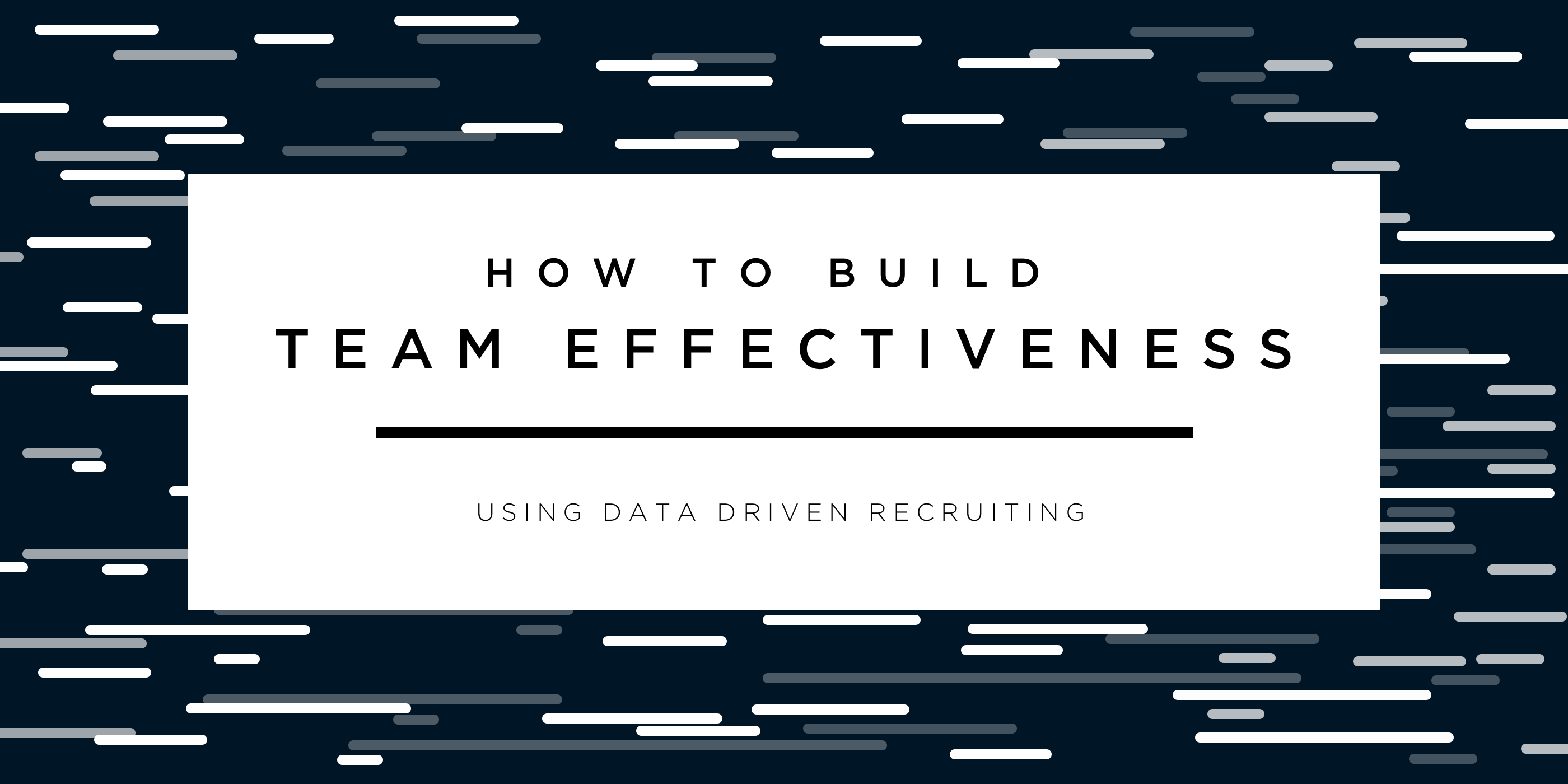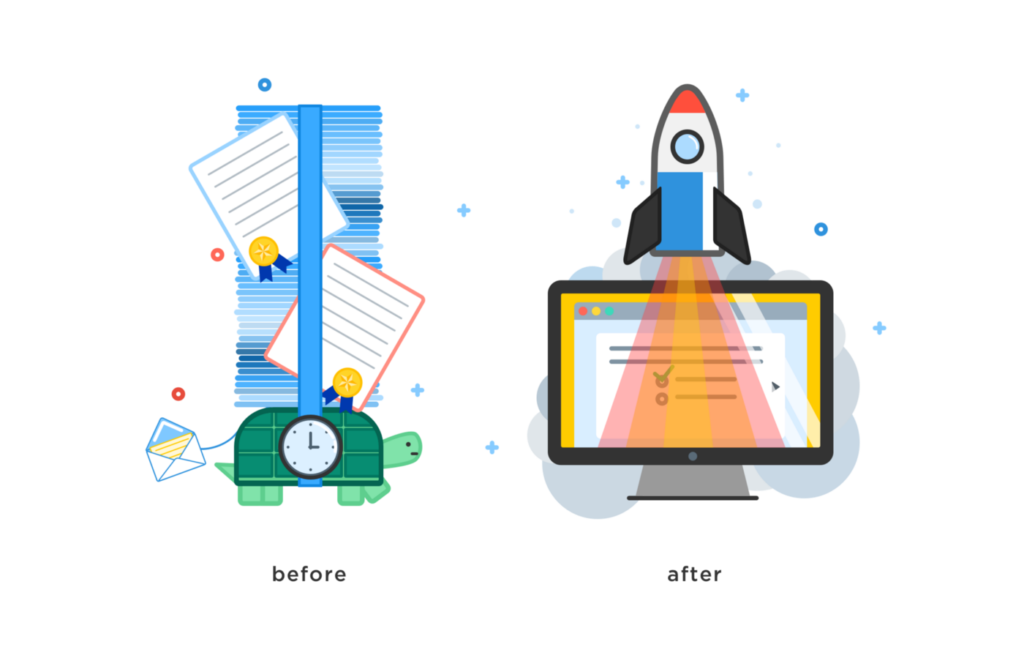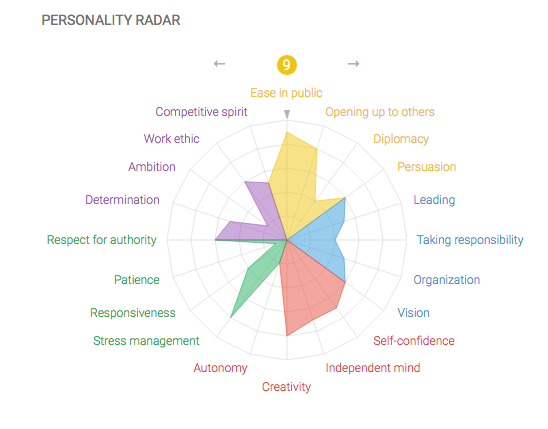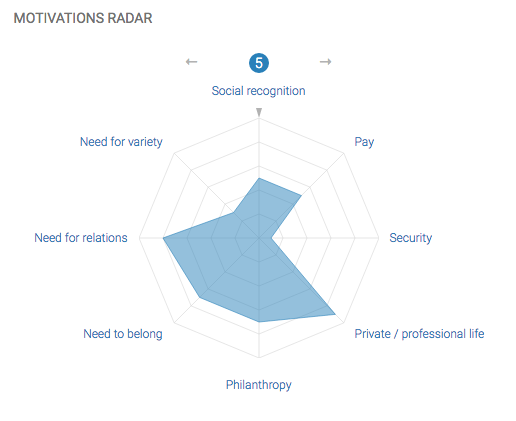How to Build Team Effectiveness: Using Data Driven Recruiting

In this three-part series on Team Effectiveness, we first touched on the importance of individual awareness, and the significance of knowing how your soft skills can best serve your team. We then dove into management techniques for creating organic team synergy. Today, the focus is shifted to recruiting.
Traditionally recruiting is done on a need basis. A job needs to be filled, resumes are collected, interviews take place, and things boil down to a gut feeling on who we think we will be the best fit. As we know, time is money, and the quicker the job is filled the happier the company is with you, at least for the time being. We fill the position and hope that our intuition served us right. With all the factors to consider (needs and expectations of the employer’s, needs and expectations of the potential employees) you are juggling a lot of pieces. It is no surprise with the demands placed on recruiting that there is room for disconnect.

The times are shifting from the more archaic way of recruiting (think stacks of resumes, endless email threads, scheduling multiple interviews) to a data driven model that focuses on soft skills rather than previous education, jobs and socio-economic backgrounds. Trying to fit someone to a job with that information alone is like putting together a puzzle without knowing what the end picture will look like. Studies show that it is not one’s past, but their current emotional intelligence that actually sets them up for future career success.
While it’s not realistic for all recruiters to be psychologists, nor is it realistic economically for each individual to go through a psychiatric evaluation with a psychologist, there are HR analytics platforms available that are focused on identifying an individual’s soft skills and not only that, but how they can translate to the workplace.
How can your business benefit from data-driven recruiting? Here are a few ways:
- Focus on soft skills and how they fit in the workplace. Team interactions boil down to individual personalities and motivations and that’s not what you find on a resume.
- It saves you time. These tests are done online and by the individual on their own time. All you have to do is read the results. This could save you time scheduling, facilitating and possibly a few interviews.
- It is measurable. With all this data at your fingertips, there is endless ways to manipulate it in order to measure growth, strategize for the future, or see trends. It seems like it would only get better over time too…imagine if you had the soft skills not only for the person who you are trying to recruit but the one who you are replacing. Your job would be finding the perfect match, and the data could help you.
What does this really look like? Talentobe has a personality test and job matching platform out there designed by top data scientists and psychologists. The assessment tests over 20 personality traits and 8 professional motivators and allows you to compare candidates against each other. Results can look something like this:


If employee retention and creating a strategy for hiring in the future is something you would like to get involved with, it may be time to move into the modern era of recruiting and give data a chance.
Eager to please your clients with data and recommend the candidates that fit the job? Check out our page to sign up for for your free trial of Talentobe Manager. And if you like this post, please hit the ❤️ button below or give me a shout on Twitter.


